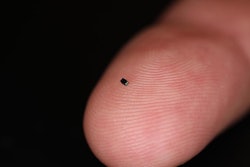The human fingertip contains 3,000 touch receptors that help us perform precise tasks. When an amputee is fitted with a prosthetic, they lose that sense of touch and with it, the ability to fine-tune movements. According to a recent AZO Sensors article, a team of scientists at Florida Atlantic University’s College of Engineering and Computer Science aims to remedy this with liquid metal sensors.
Liquid Metal Sensors Could Give Prosthetics Sense of Touch
The new technology distinguishes between ten different multi-textured surfaces with 99.2% accuracy.
Aug 18, 2021
Sustainable Healthcare Packaging Solutions That Work
Industry leaders share proven strategies for reducing packaging emissions by up to 70% while meeting safety and regulatory requirements.
Read More
Researched List: Blister Machines for Life Sciences
Need a blister machine for life sciences packaging? Our curated list features companies serving pharmaceutical, medical device, nutraceutical, and cosmetic industries. Download to access company names, locations, machine specifications, descriptions, and more.
Download Now
Downloads



















